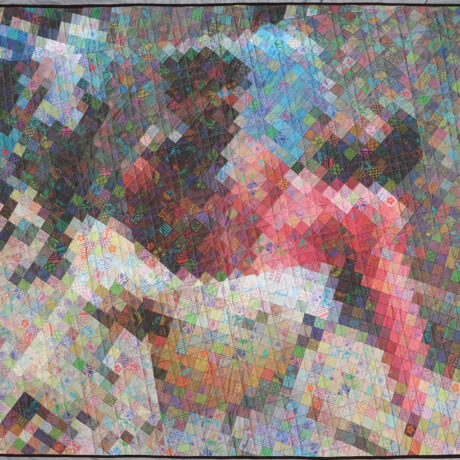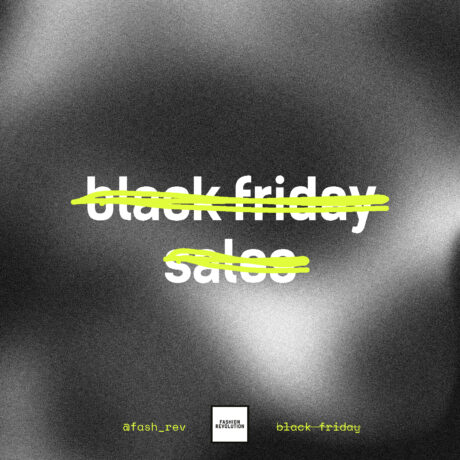Made in Bangladesh, the Movie That Will Make You See Garment Workers in a Different Light
Director Rubaiyat Hossain might be petite in size, but she must be a strong woman to have directed such a powerful film as Made in Bangladesh. I saw the movie at the Toronto International Film Festival in September 2019 where it had its world premiere. My partner and I were encouraged by a colleague to go see the film. We always share our thoughts about the films we see, and her words were compelling: “The best film I have seen so far is ‘Made in Bangladesh’.” OK, I thought, I have to see it!
Made in Bangladesh is the story of women garment factory workers who fight for their human dignity. The lead character is Shimu, 23, who works in a clothing factory in Dhaka, Bangladesh. Faced with difficult conditions at work, she decides to start a union with her co-workers. Despite threats from the management and disapproval of her husband, Shimu is determined to go on. Together the women must fight and find a way.
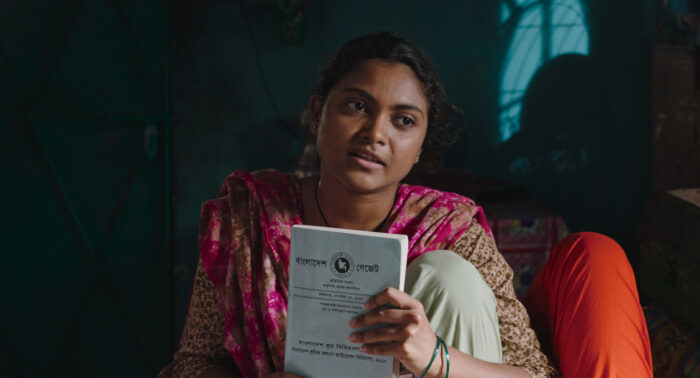
“Shim […] could be the face of global capitalism: a young woman who works punishing shifts at a textile factory for paltry wages on which she cannot even afford rice for herself and her unemployed husband,” said Dana Reinoos from Cinema Scope magazine.
The story is based on the life of a woman Rubaiyat met and interviewed over a three-year period. When asked what drew her to this story, Rubaiyat responds: “I have always been interested in examining, on screen, women’s lived experiences and social conditions. I did some research for three years, meeting lots of factory workers, because I didn’t have any experience working in a factory. I finally came across this woman named Daliya, who was a union leader. I felt she was courageous, strong, and articulate. She had been treated so badly, being in an abusive marriage, but she was longing for dignity. So, I could begin to write my story, which is loosely based on real events of her life.”
When asked about what struck her during her research, Rubaiyat answers: “The women factory workers are very young, they’re mainly between 18 to 30. It is hard to find older factory workers as they develop back and shoulders problems, as a result of sitting on hard benches, bent over the sewing machines ten hours a day, six days a week for a hundred euros a month in the best case. But what I found fascinating is that, even with very little pay, difficult conditions at work and struggles against patriarchy at home, these women are empowered. Because one hundred years ago in Bangladesh women could not even work, they had to live in seclusion. Today, they are working, they are making a living for themselves and their families, and they are fighting within the factory and at home for their rights.”
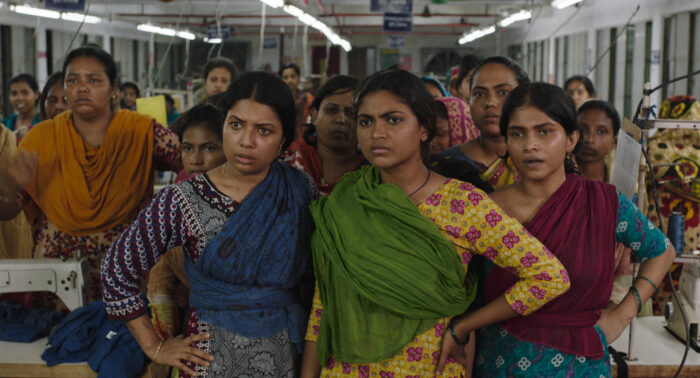
Women in the film express the powerful truth: “Workers’ rights are human rights. Women’s rights are human rights.” In Made in Bangladesh, Rubaiyat explores worker’s rights and women’s rights, merging both issues with great dexterity. The movie not only has a powerful message, it is also beautifully crafted with attention to details, beautiful acting and cinematography. Women don vibrant fabrics while performing soulless garment work.
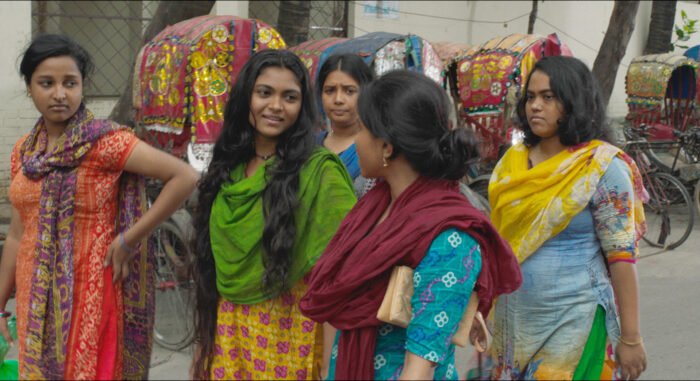
The internal evolution of the lead character, Shimu, is reflected through her hairstyle. The director explains: “Her hair progressively got loose through her empowerment process. She was wearing a hijab and during the fight with her husband, she takes it off. At the end of the movie, her hair is free as we never saw it before. Her body language expresses her feminine power.”
My partner and I saw the film in Toronto and decided to pick it up for distribution for the USA. Our company ArtMattan Productions, is a company dedicated to the distribution of cinematic works that explore the human experience of people of color all over the world. We also produce the African Diaspora International Film Festival (ADIFF) held in New York City.
Since 1993, ADIFF’s editorial line aims at remaining culturally relevant with a selection of meaningful thought provoking titles presenting the human experience of people of color. Some titles come directly from important national and international film festivals such as Sundance, Toronto, Durban, the Pan African Film Festival, FESPACO, Cannes, and Berlinale. Others are very independent productions made by filmmakers eager to share their message with an audience.
Made in Bangladesh will have its New York Premiere at the African Diaspora International Film Festival. Director Rubayat Hussein will attend all of the screenings. Find tickets at: nyadiff.org
By Diarah N’Daw-Spech, MBA
GM ArtMattan Productions / Co-Director ADIFF





